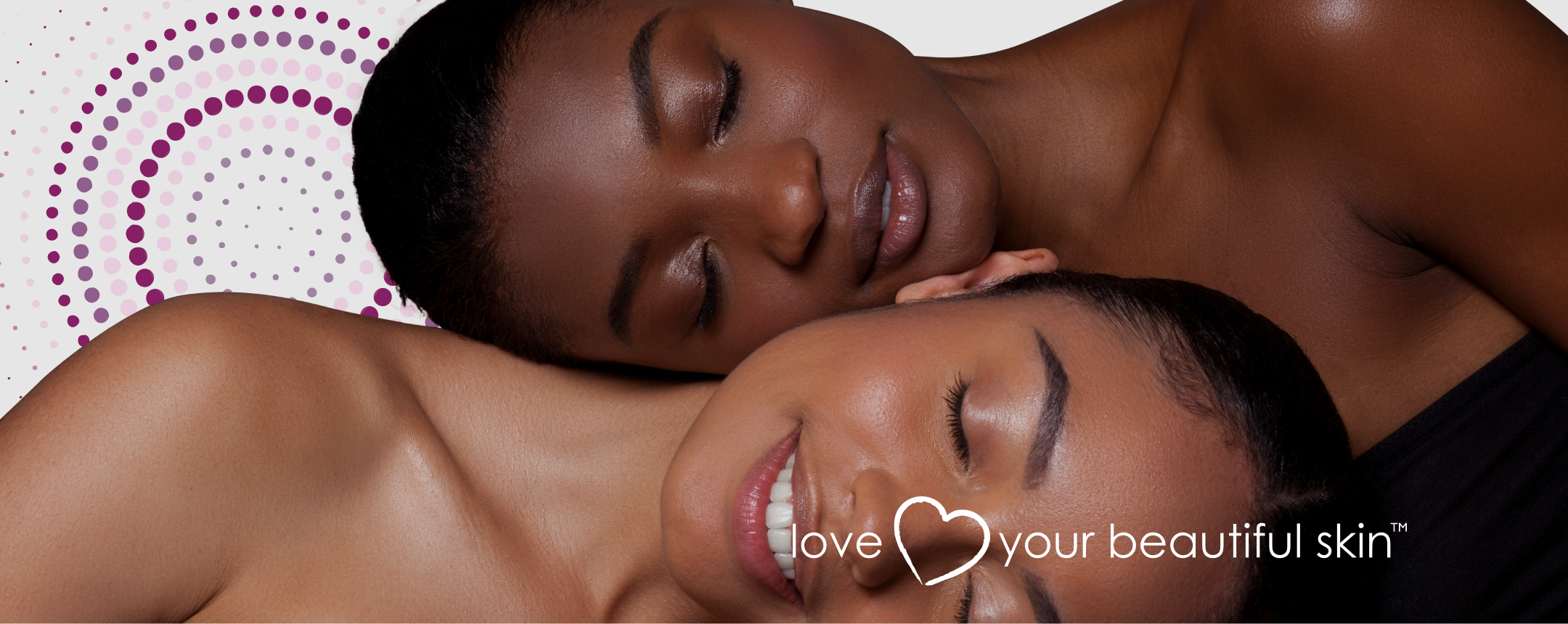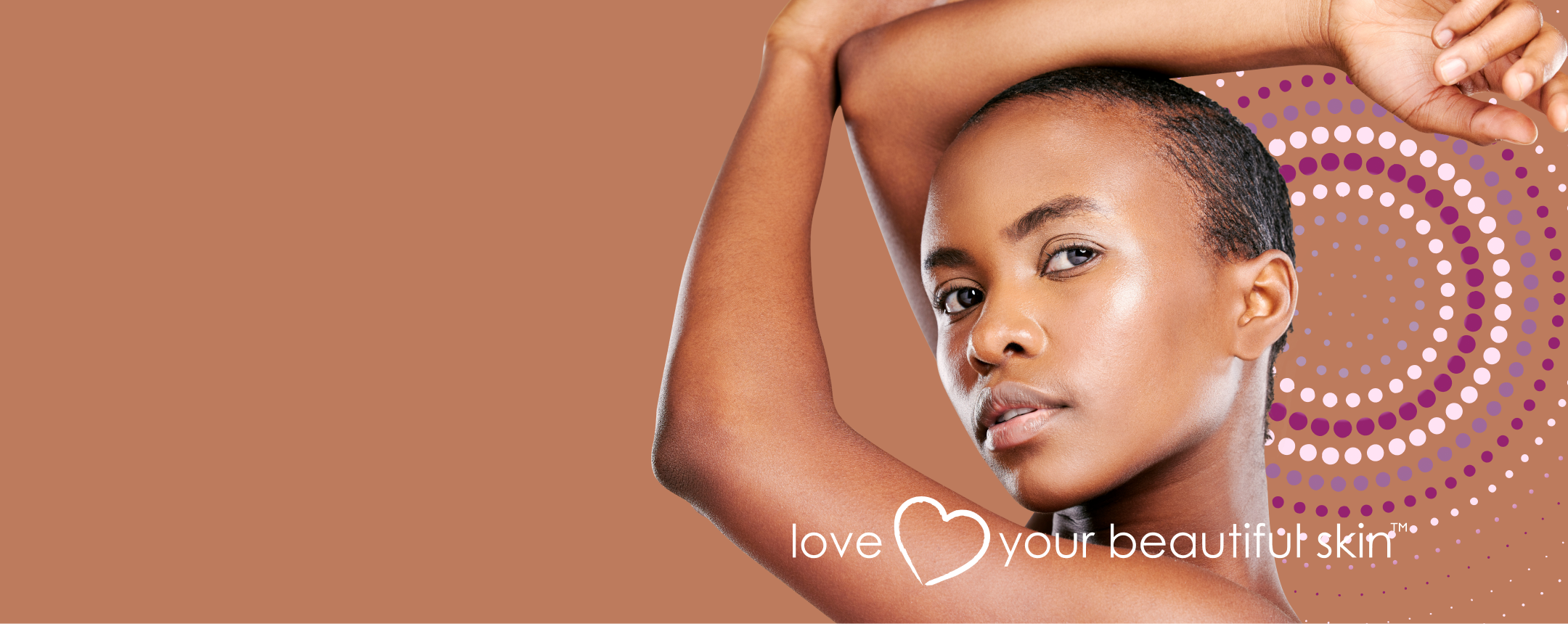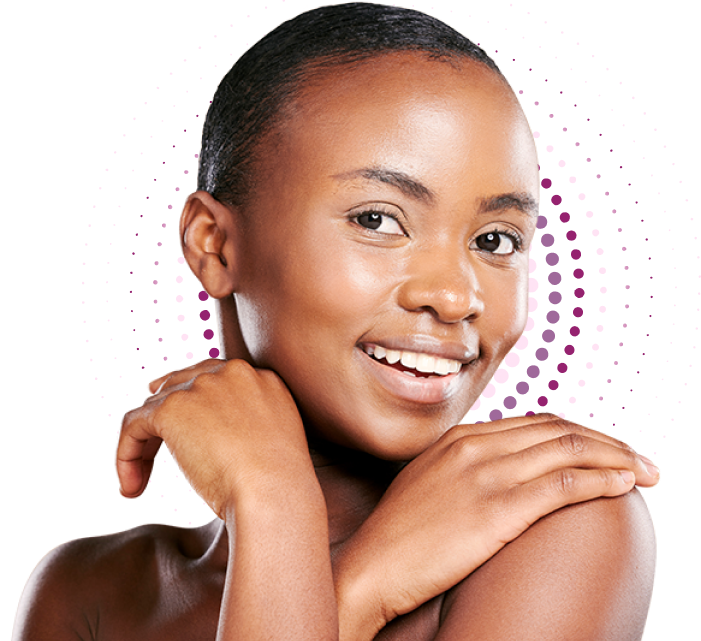Uneven skin tone is a universal problem that affects people of all ages and skin types. It can be frustrating to deal with, especially if you are unsure why you have dark spots. Therefore, understanding the causes of uneven skin tone can help you prevent and manage it effectively.
So what causes dark spots on face?
While there are many potential causes of uneven skin tone on face, one of the common reasons is excess melanin: A pigment that not only helps protect our skin from the sun’s harmful ultraviolet (UV) rays but, that also gives our hair, eyes, and skin their colour.
Increased melanin production can be triggered by various factors, such as sun damage, pollution, hormonal changes, as well as injuries to the skin. This is because our skin produces more melanin as a way to protect itself. Yet, over time, this can lead to a build-up that manifests as spots that are darker than our normal skin tone.
These dark spots are referred to as hyperpigmentation. You can be genetically predisposed to hyperpigmentation, but your gender and ethnicity also influence things. Fortunately, some topical creams and serums can help you address this all-too-common problem.
What causes hyperpigmentation?
Sun exposure
Sun exposure is the leading cause of hyperpigmentation, therefore, it is pivotal to wear sunscreen every day – even on cloudy days. Whilst time in the sun assists humans in creating a very important hormone (vitamin D), too much exposure actually presents a threat to the DNA in your skin and can lead to damage called photocarcinogenesis.
So, for even skin tone, stay out of the sun, especially during peak hours, and always opt for sunscreen.
Pollution
Pollution is another environmental factor that can cause uneven skin tone, as it can penetrate the skin’s surface and lead to inflammation which can result in dark spots, dullness, and premature ageing – especially in urban areas with high pollution levels. To protect your skin, clean your face thoroughly and regularly, and use skincare products that contain antioxidants to help neutralise free radicals.
Hormonal changes
Hormonal changes can also contribute to hyperpigmentation, especially in pregnant women or those taking hormone or birth control pills. This type of hyperpigmentation is known as melasma and tends to show up as brown patches on the cheeks, forehead, and upper lip.
While melasma is not harmful, it can be challenging to treat because it can recur even after successful treatment. To prevent melasma, it is essential to use sunscreen, steer clear of hormonal medications, and consult a dermatologist for an accurate diagnosis and appropriate treatment plan.
Injuries and post-inflammatory hyperpigmentation
Other types of hyperpigmentation are acne-related or due to an injury to the skin: Dark marks occur after the skin has been inflamed and, therefore, this type of hyperpigmentation is called post-inflammatory hyperpigmentation.
To prevent post-inflammatory hyperpigmentation, it is crucial to avoid picking or scratching your skin and to work on a skincare routine that is aimed at acne prevention.
How to get glowing skin
Step 1
Your first step to remove dark spots is a thorough cleaning. Just be sure to be gentle. If you use harsh products or apply too much pressure, you can irritate and inflame your skin. Apply a mild face wash with the tips of your fingers and then rinse it off with lukewarm water.
Step 2
Next, you can utilise a toner for gentle but effective exfoliation. This also ensures you remove all the dirt and impurities that can get trapped and turn into pimples.
Step 3
Moisturising is key to any skincare routine. So to treat dark spots make sure you include products that are designed to treat uneven skin tone. Remember that a day cream with built-in sunscreen will make your life a lot easier because you don’t have to use two different products in the mornings.
Pro Tips
● For the ultimate radiance, give your skin a boost with a night cream that will ensure deep hydration and dewy, soft skin every morning.
● Clean your skin every day, morning and night, and if you have been sweating.
● Try to introduce new skincare products one at a time so that you can gauge whether or not something is working for you.
Best cream for dark spots and uneven skin tone
Clere Radiance Even Tone Beauty Soap Bar (100g) contains lemon extract to provide a deep clean without disrupting the skin’s natural moisture levels. This beauty bar also incorporates strawberry seed oil, which has naturally occurring hyaluronic acid, an ingredient known to stimulate collagen production and promote cell turnover.
Clere Radiance Even Tone Face Wash (100ml) is supplemented with bilberry seed oil, known to boost the skin’s regeneration, as well as chamomile flower extract, which has a smoothing and soothing effect on the skin.
Clere Radiance Even Tone Toner (100ml) is enhanced with niacinamide (a type of vitamin b3) which is helpful in the treatment of dark spots. It also contains black raspberry seed oil, an ingredient proven to help your skin’s defences against environmental stressors.
Clere Radiance Even Tone All-In-One Day Cream (50ml) incorporates SPF 20 to shield your skin against sun damage and contains ingredients like strawberry seed oil to reduce the appearance of dark marks.
Clere Radiance Even Tone Night Re-Newer (50ml) contains super moisturising ingredients to boost your skin’s overnight renewal: Shea butter has soothing properties to help create smoother skin, and cocoa butter is high in fatty acids that help to hydrate the skin and improve elasticity.
Clere Radiance Even Tone Complexion Cream (50ml) is enhanced with superfruit serum and vitamins B3 and E for clear radiant skin. It also contains SPF 15 to help protect you against the sun’s damaging UV rays.
Clere Radiance products are available online and at all leading supermarkets and pharmacies nationwide.
DISCLAIMER: Please note that the information provided on this site is for educational purposes only and does not provide a substitute for professional medical advice. Always consult a qualified healthcare provider for any questions or skin concerns.


